The Curious Case of Esports in 2024
As big investors are stepping out, Saudi Arabia is stepping in, pouring billions into this thriving yet fragmented industry.
But is Saudi Arabia genuinely boosting esports, or is it a strategic play at the cost of the industry’s independence? With concerns about an esports monopoly, I’ll unpack Saudi Arabia's real impact. What's in store for esports – global recognition or commercial exploitation?
Why investors bailed
Two Point Three Billion Dollars! That’s the massive size of the esports market today. With 540 million global viewers, esports is huge in entertainment, rivaling traditional sports. Viewership alone will grow and skyrocket over the upcoming years, with peak events drawing millions of viewers. Top pro gamers are raking in millions and have become household names, backed by serious money from VC to state funds.
But it’s not all smooth sailing. Despite the growth, key investors are bailing left and right. The money they expected in return was just not rolling in. They were making unrealistic comparisons to traditional sports, betting on massive returns from packed stadiums and merchandise.
But comparing the Overwatch League to the NFL? In hindsight, that was a stretch. Especially when it came to operational costs.
But their financial strain grew and caused entire downfalls of major leagues like the Overwatch League, CLG, and FaZe Clan. Even 100 Thieves, the second-most-valuable esports team in the world, had to let go 20% of its workforce.
So with little ROI, sponsors like BMW and HP didn't stick around and put their sponsorships elsewhere.
But what are BMW and HP compared to the heavyweight champion of wealth – Saudi Arabia. A country that went from this to this thanks to its large oil reserves. Home to the world's largest airport, largest desert, and tallest fountain, Saudi Arabia is now pouring resources into esports, aiming to become of course the largest gaming hub in the world. A strategic move that aligns with Vision 2030 - a government plan to diversify the economy and reduce its dependence on oil.
Because when the oil price dropped in 2014, it became clear that oil dependency is a risky business. And the person in charge? Mohammed bin Salman, known as MBS, or, Mr. Everything, as he oversees virtually everything. Under his rule, there’ve been some modern reforms: Women are now allowed to drive, travel abroad alone, and cinemas reopened after 35 years.
Funfact: MBS is also a massive gamer. For MBS, esports is one of the most important industries on the planet, with an expected 25% profit from its investments.
In fact, the MENA Gaming Market is booming, with $6B to a projected $10B by 2029. Saudi Arabia’s gaming market alone stands at $1B with a projected $3B by 2030. With 23M gamers, it’s the largest market by games revenue.
Another fun fact: 70% of Saudis are under 35. A perfect audience for esports events. Such as the Gamers8 festival, organized by the Saudi Esports Federation (SEF). Last year, it had a prize pool of 45M, the largest one in esports history, surpassing the previous one. The SEF is also supporting female gamers with initiatives like the all-women CS:GO tournament at Gamers Without Borders.
The money invested into esports comes from Saudi Arabia’s sovereign wealth fund The PIF. It’s the 6th largest of its kind and the financial powerhouse behind every major Saudi initiative. Just look at its gaming portfolio: The PIF invested
$3B in Nintendo
$3.3B in Activision Billzard
$1B in Capcom and Nexon
$3B in EA
$1.3B in Take-Two
$1.5B in ESL & FACEIT
and so many more.
And then there is the Savvy Games Group, a subsidiary of the PIF. The Savvy Games Group plans to create 250 gaming companies and 50k jobs with a GDP contribution of $13B. They’ve already made a splash by acquiring Scopely, the makers of the hit game Monopoly GO! A game that made over $1 billion in revenue since its launch in April 2023. Savvy CEO Mr. Ward puts it boldly. And the stage for this grand gaming ecosystem? Qiddiya City, the world’s first gaming and esports district. With its 500k square meters, it’ll be home to 25 esports clubs and 30 game companies. And of course, besides the largest fountain, airport, desert and oil reserve, it’ll have the largest esports arena, too.
You see, MBS is very serious about this. But with such hefty investements, he’s often asked:
“What do you say to people who charge that that's part of Sportswashing?” (Fox News)
“Well if it's sportswashing and it increases my GDP by 1%, then we'll continue doing sportwashing.” (Mohammed Bin Salman)
An honest response. His focus is obivously on growth, not on critics’ perceptions. It’s a pretty pragmatic stance. And, you know, Sportswashing, Greenwashing, Whitewashing, Esportswashing - you name it - it’s a tactic as old as time, known as “Bread and Circuses”, to distract from issues with food & entertainment. It’s the oldest playbook in the world. And one that we in the West are no strangers to either. Western countries use events for similar purposes; our forms of washing might be more subtle, but they exist. The main difference between ‘them’ and ‘us’ is that Saudi Arabian investments in esports are directly orchestrated by the state, not by some private corporate entity. It's not just funding; it’s a state action which can buy silence and complicity over very severe internal issues.
Human, Women and Migrant workers rights. Death penalties based on social media activities, murder of a journalist, mass starvation in Yemen, infamous anti-corruption purges, and the list goes on. Saudi Arabia’s approach to power and control is obvious. And one might wonder how this paves the way for an esports monopoly. We’ve seen this play out before: Take the PGA vs LIV Golf situation. PIF funds LIV, a competitor to the PGA, and lures top golfers away from there with unprecedented cash prizes, ultimately forcing a PGA-LIV merger. Or Newcastle United, 80% owned by the PIF. Their third kit started to mirror Saudi national colors, fans wore Saudi-inspired headdresses, and the club entered a partnership with noon.com — a major Amazon rival in Saudi Arabia. All to further blend the club's identity with Saudi interests. Or let’s take a look at Vice Media. After the journalist's murder, Vice pulled back from Saudi Arabia but later entered a million-dollar-deal with them, as it was facing bankruptcy. What followed was Vice pulling down a documentary from Youtube that was crititical of Saudi Arabia.
What about Saudi’s impact in the gaming world? Well, let’s look at Embracer Group. After a $2 billion deal with Savvy Games Group unexplicably collapsed,the gigantic video game conglomerate had to dramatically restructure after Embracer had to close studios, cancel projects, cut jobs across the board, including "Saints Row" studio Volition.
In 2020, Riot Games dropped Saudi’s NEOM project as a sponsor after a backlash over LGBTQ rights. But now, it seems Riot’s stance is changing. Riot confirmed that it is in talks with Saudi’s Esports World Cup to allow two teams from each of its leagues to participate.
It’s pretty clear that the attitude about doing business with Saudi Arabia is changing among esports organizations. Even content creators, who would have avoided promoting projects like Esports World Cup, Neom, and Qiddiya are promoting these projects without fear of backlash. In fact, many prominent names from the gaming world attended the New Global Sport Conference in Riyadh last year. Savvy Games Group, Sony, Sega, Take-Two, Ubisoft, and others all showed up.
Saudi money, then, is already changing the gaming industry just as it is changing sports and culture. If taken to an extreme, we could see game content and esports rules starting to align more with Saudi political views, and tournaments favoring Saudi-backed teams and games. We're already seeing signs of this influence. Take the Gamers8 tournament for CSGO. Team Falcons, a Saudi-owned team, made an appearance despite not usually qualifying for S-Tier tournaments.
And while the Gamers8 bread and circus was going on, Saudi border guards were systematically killing hundreds of Ethiopian asylum seekers. Those involved in these killings are the same ones organizing the events.
There is much silence around this. But one of the few to comment on this issue was Team Liquid. On X, their post reads that “Saudi Arabia’s laws and policies do not line up with our values of the esports community”. Team Liquid still participated in the Gamers8 CSGO event. Their CEO produced a 4 min video explaining why. It’s tricky indeed. The responses under the video range from skepticism to calls for boycotts. Reactions that highlight the struggle to reconcile ethical dilemma and financial interest. But then there are some that are pretty clear on where they stand. In 2022, Moist Esports, founded by gamer ‘MoistCritikal’, refused an invite to Gamers8’s Rocket League tournament saying “I will not be associating with a country that does not recognize LGBTQ+ people as human beings.”
Another telling example of the geopolitical complexities happened at Gamers8 when Israeli players FlameZ, Spinx, and NertZ required constant security due to the tense relations between Israel and Saudi Arabia. Spinx tweeted after winning the Gamers8 prize, thanking the security guys.
When such geopolitics affect esport players, you've got to ask: what's the real cost of this involvement? Time will tell. On the flipside, I can see how these big investments could actually give esports a boost. As they're pumping in cash for prize pools and big events, it might bring in more eyes on esports altogether, pull in new fans and offer more chances for players all over the world. For the industry's long-term health, this cash injection might be just what's needed, especially when times are tough. And let's not forget legitimacy. Having big players like Saudi Arabia involved could make esports seem more legit, more like traditional sports.
But it's a fine line - Balancing growth and keeping true to what esports is all about. Players and orgs tend to forget that they are the ones being used. Look at Manchester City and Paris St Germain. Funded by Abu Dhabi and Qatar, the more they win, the more people forget about what's really happening behind those borders. Does it mean we should all feel bad now when enjoying esports? Of course not. No one wants to kill the joy that esports brings to the world. It’s an escape and it unites us. But games and esports aren’t just games and esports. They’re not and never will be politically neutral, as much as we might wish they were. And that’s why we've got to keep talking about it. Keep the conversations going. Enjoy the sport but also be aware of the bigger issues at play. And while we do that, we’ve gotta look at ourselves. As we critique Saudi Arabia, we too have to reflect on our own actions and biases. Because in the world of esports, where culture and politics mix, keeping things fair is everyone's job, not just the job of one singular country.


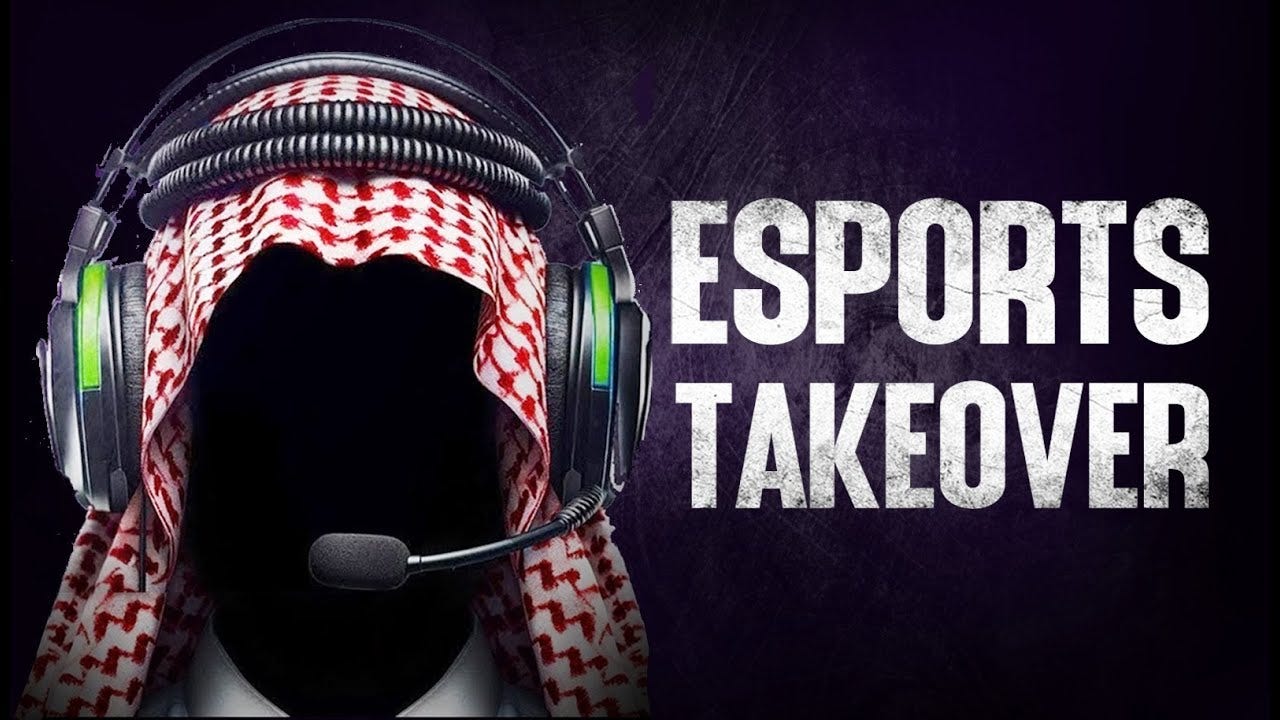
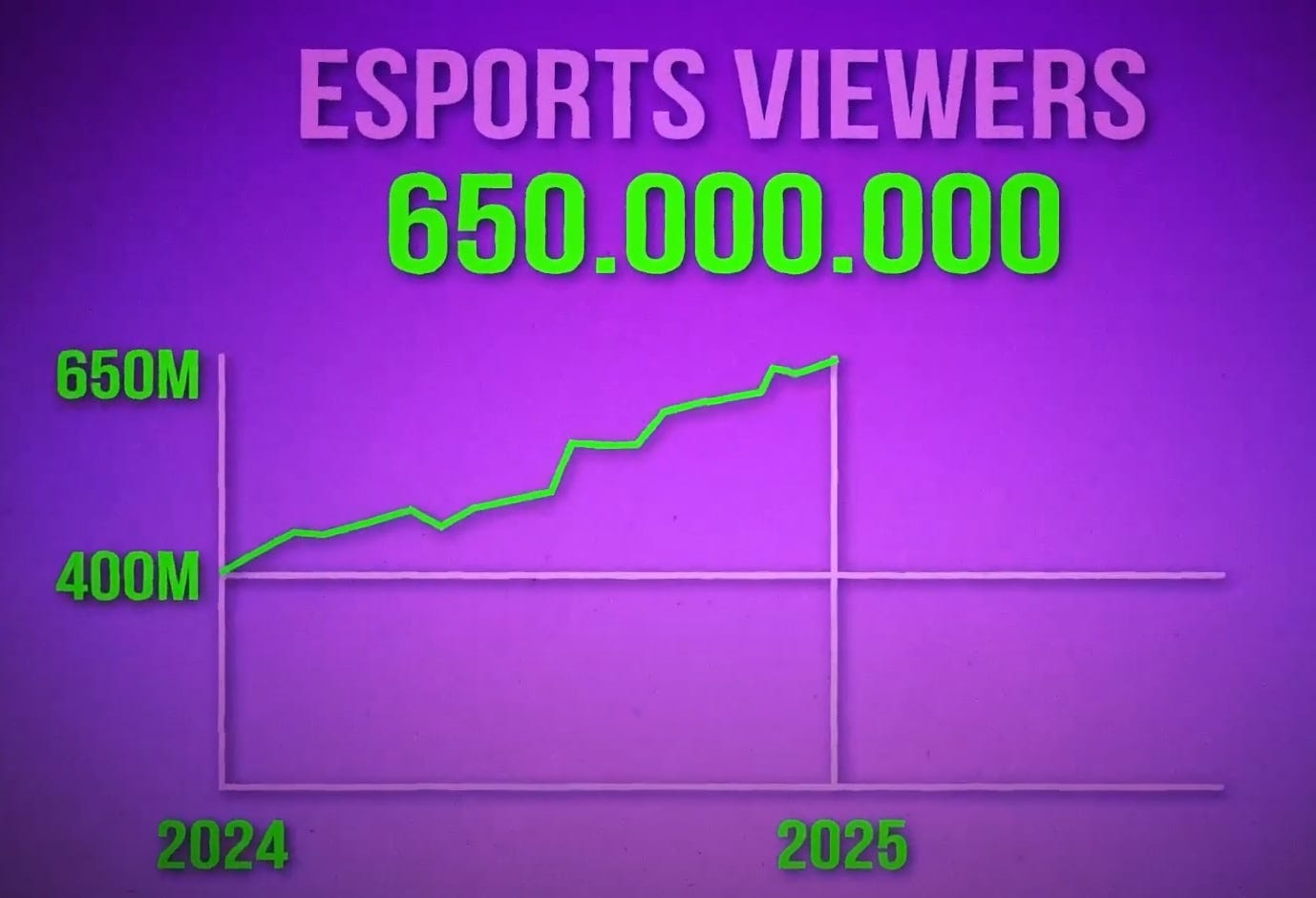
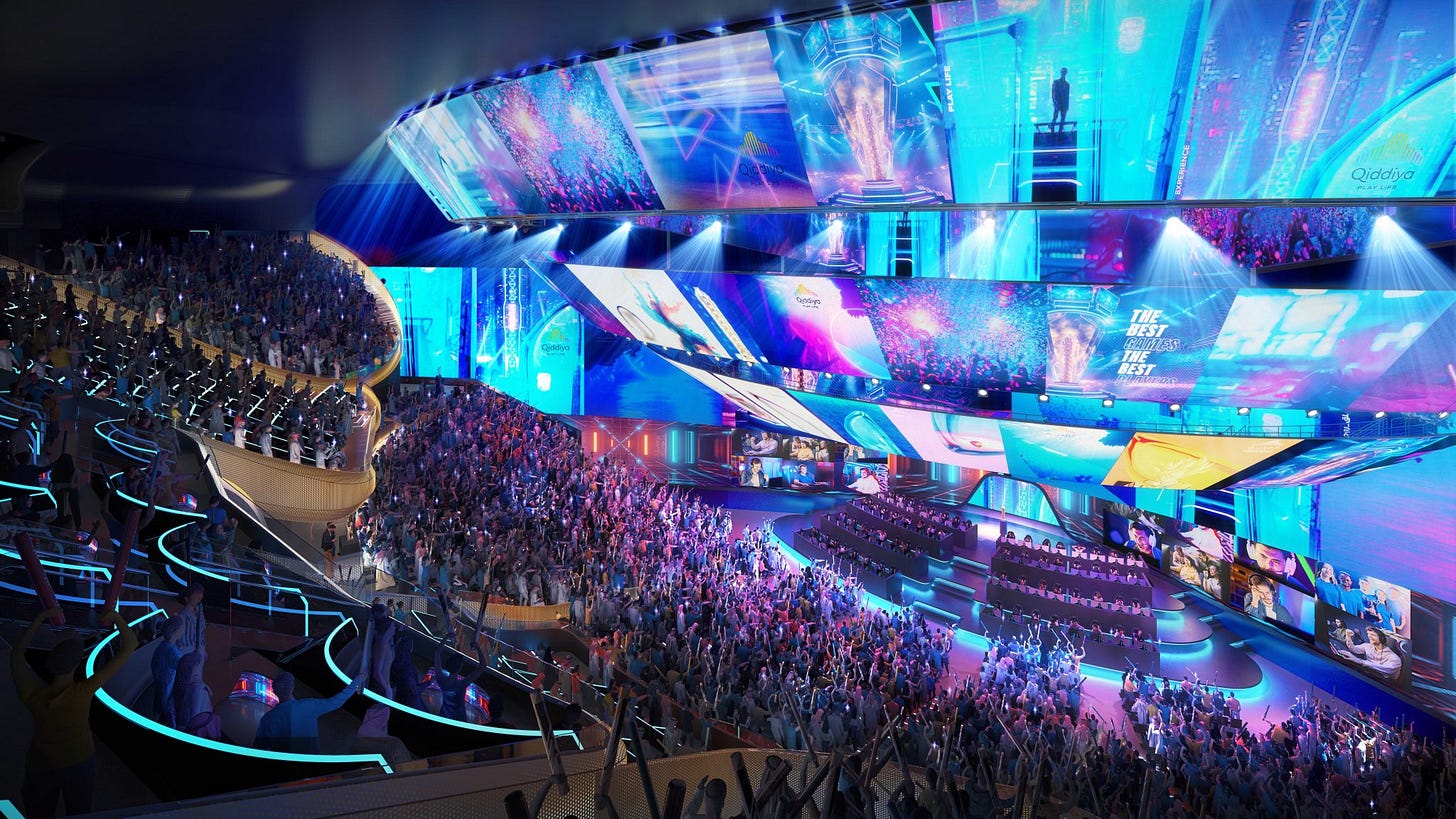
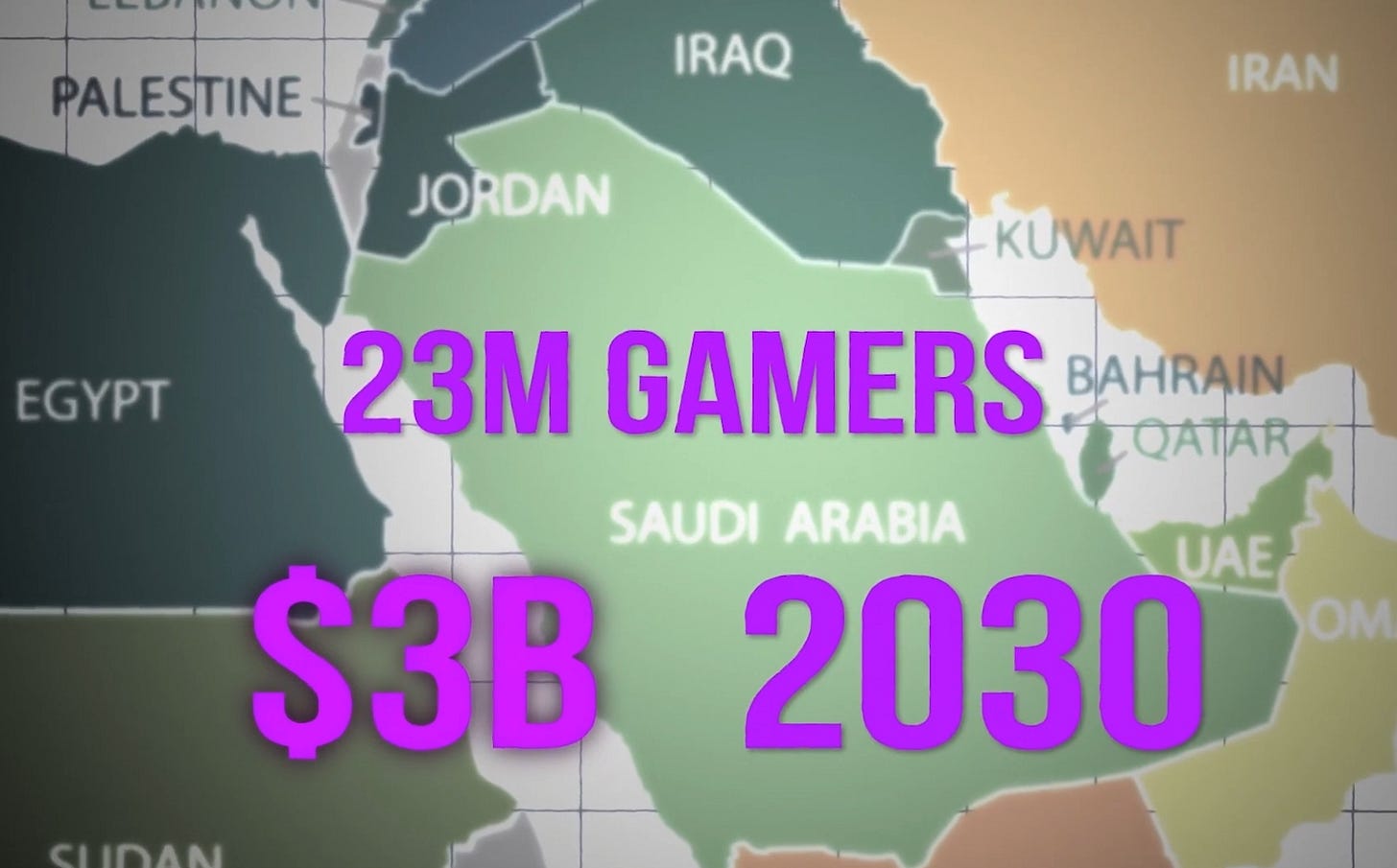
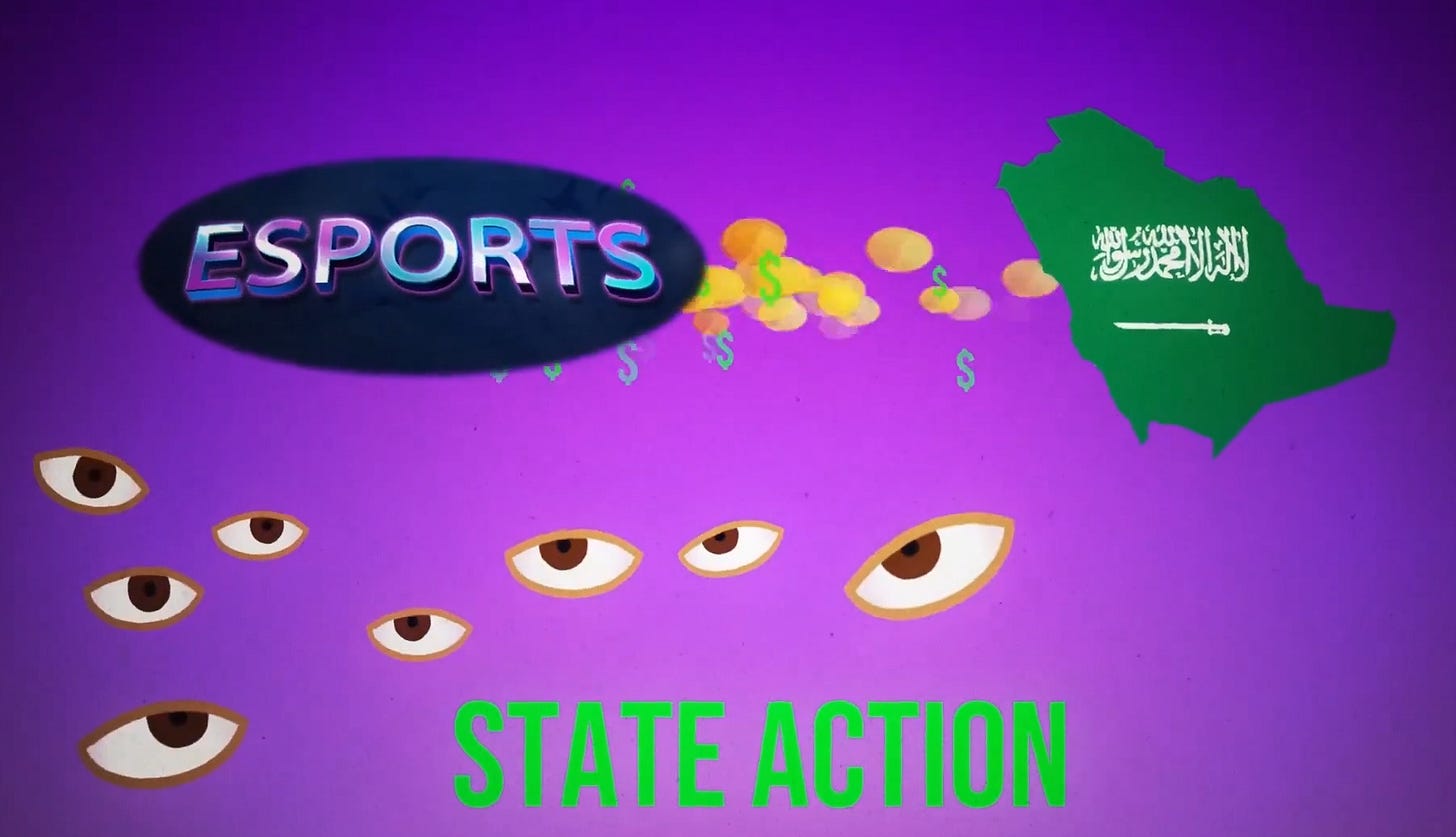
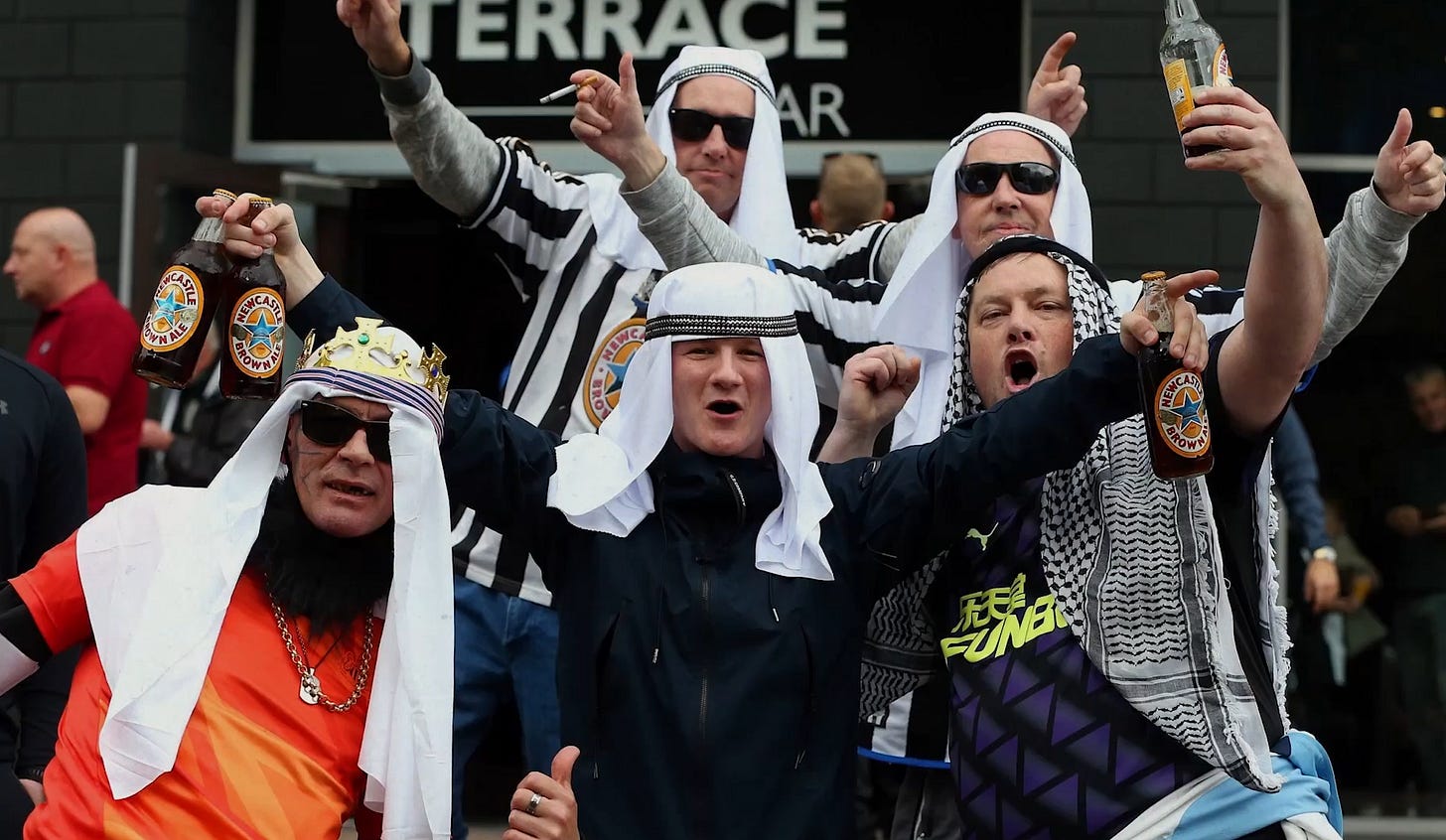
Great article and video. Everyone should read and see them. - tbeaubois